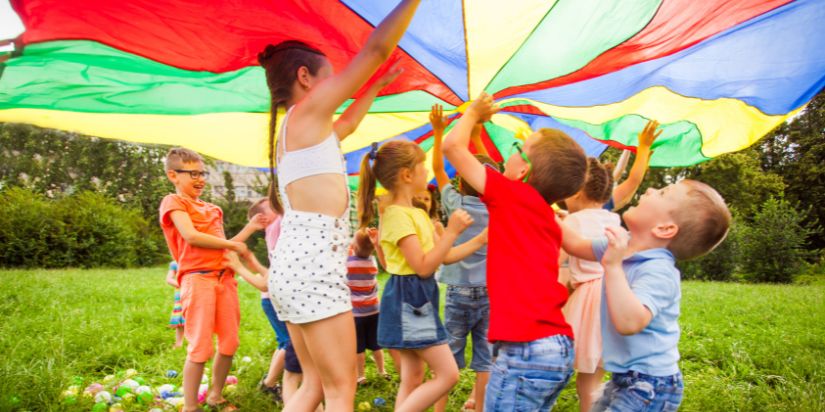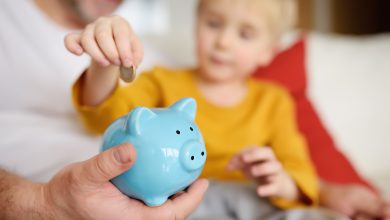How to Teach Social Skills to Your Preschoolers

How to Teach Social Skills to Your Preschoolers
Becoming a well-rounded person with excellent social skills takes lots of time and practice. There is so much that goes into sharpening the skills it takes to navigate interactions with others. So how can parents help teach social skills to their preschoolers? This post is a one-stop shop for the valuable information you need to get started.
(Note: Most of the advice offered in this post is for neurotypical children. If you’re the parent of a neurodiverse child — one who has autism, is on the spectrum, has ADHD, or has other developmental differences — these tips may not be effective or work at all. Check out the resources at Autism Speaks, ADDitude Magazine, or the CDC for advice that may help you more.)
What Are Social Skills?
Before we go any further, remember … kids aren’t born with fully developed brains. Mentally and emotionally, they may not be ready for some of these concepts because of the developmental stage they are in. They may even be in a season of regression. The goal isn’t instant perfection when it comes to social skills. The goal is to work consistently with your child so these concepts take hold once their minds are ready. Even then, social skills need refinement far into adulthood. Grown-ups need to work on social skills, too.
Now that we’ve covered that, what do we mean by social skills?
The American Psychological Association defines social skills as the learned abilities for interacting appropriately in different social situations. Essentially, your child is learning how to interact with the people around them so they can be successful in building relationships and community.
That’s a pretty broad set of skills.
But there’s a lot to learn! And remember, this is a “learn and refine as you go” process. No one is expecting anyone to come anywhere close to perfect on this topic.
Tips for Parents on Teaching Social Skills
- Preschool social skills: How to raise kind and competent kids
- Be calm and supportive when children are upset, and don’t dismiss their negative emotions.
- Practice inductive discipline.
- Inspire children with encouraging words — not criticism.
- Be careful about offering material rewards for acts of kindness.
- Show kids how to apologize, make amends, and offer forgiveness.
Types of Social Skills to Teach Preschoolers
With such a wide range of social skills to teach kids, where do parents even start?
Don’t worry. We’ve got you. Here is a list that encompasses most of the social skills kids should start learning by the time they turn 6.
Do not (repeat do not) try and start working on all of these skills with your preschooler at the same time. That is not the goal. As you go about life, be aware that these are the types of skills your child will slowly start to learn as they go through toddlerhood and their preschool years. If you can touch on most of these by the time they go to kindergarten, you’ll be ahead of the game.
For each topic, we’ve linked to articles that go into more depth about how to teach or foster the skill in your little one. Happy reading!
- Cooperation, Collaboration & Empathy – Learning to work well with others and being able to walk in their emotional shoes are two skills that everyone needs for their entire lives. Unfortunately, they aren’t social skills we’re born with. Or learn quickly. Or like to do all the time. So take it slow with your preschooler and know they’ll get better the older they get.
- Cooperating & Working Together
- Compromising & Negotiating
- Sharing & Taking Turns
- Showing Sympathy & Having Empathy
- Politeness & Manners – Simple things like saying “please” and “thank you” are simple but effective ways to show you care. As soon as your little one can speak, you can start teaching them how to use these simple phrases to express gratitude and compassion.
- Not Interrupting
- Expressing Gratitude
- Health & Hygiene – Humans are gross. Sure, infants can’t cover their noses and mouths when they sneeze, but a 3-year-old can. Make learning about hygiene a gradual process with your child, with expectations getting higher as they get older.
- Building Immunity
- Respect for Others – Honoring others and caring enough to think about how actions impact others doesn’t come naturally … but WOW is it important.
- Raising Respectful Preschoolers
- Age-Appropriate Ways To Teach Respect
- Respecting Others’ Characteristics or Appearances
- Fair Play – Play is something most kids find easy to do. Playing well with others? Now that’s a different story. Take the time to work with your kids on things like winning or losing graciously and interacting well with others.
- Playing Fairly
- Listening Skills – We’ve all been in a boring or uncomfortable conversation that we wish we could get out of but can’t. However, we all know it’s rude to just walk away. Help guide your children on how to listen and have good conversations by including them and gently correcting them when they’re unintentionally rude.
- Making Eye Contact
- Listening Well
- Dealing with Emotions – Little people have some BIG emotions. Guide them through the steps of learning to calm down and process their emotions … and prepare yourself for when their displays of emotion happen at an inconvenient time.
- Appropriate Ways to Show Emotion
- Dealing with Anger or Frustration
- Building Relationships – People love people. We need connection! There are easy ways to start showing your child how to make friends. And don’t forget to work on the very first friendships they will probably have — the one with their siblings!
- Making Friends Through Play
- Raising Siblings Who Are Friends
- Encouraging Harmony Among Siblings
You’re Not Alone
Learning the social skills it takes to be a positive, well-rounded human takes a lot of time and training. Thankfully, you don’t have to be the only teacher!
Preschool is an excellent place for little ones to learn the important social skills they’ll need to thrive. With teachers who are dedicated to their success and other children their age giving them ample opportunities to practice, kids who go to preschool have an amazing opportunity to sharpen their people skills.





